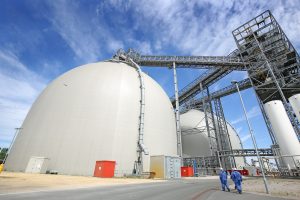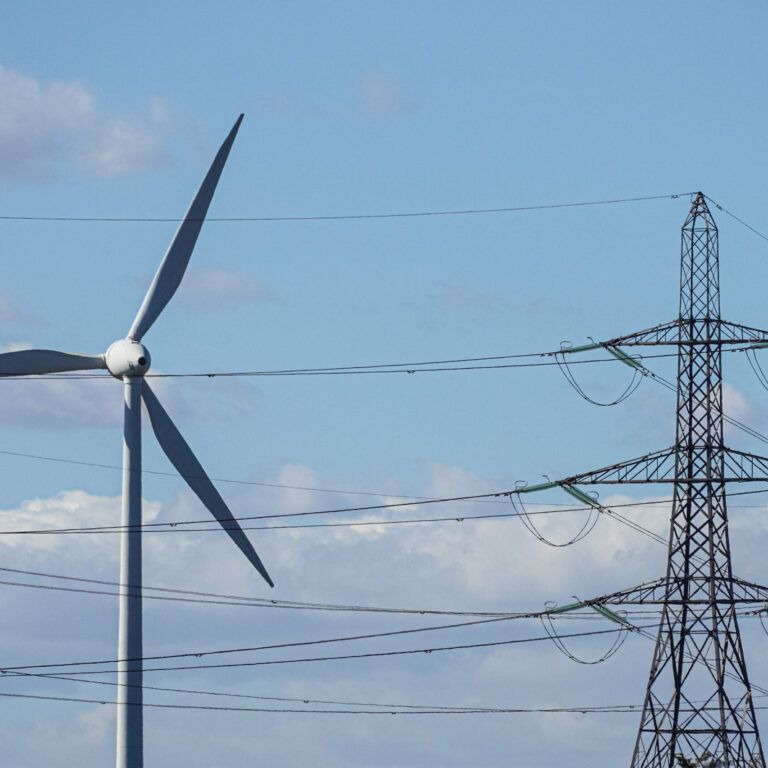The third generating unit at Drax Power Station has been given European Commission (EC) approval to be fully powered by sustainable biomass.
Drax can now complete the upgrade of the third of its six units to run on wood pellets. The third unit upgrade started in July 2015 and now half the power station will produce renewable electricity, saving 12 million tonnes of carbon each year.
Drax produces enough renewable electricity to power three million homes. In the first six months of this year 20% of the country’s renewable power was provided by Drax.
The government has set out proposals to end coal-fired generation by 2025 as part of its plan to stimulate more clean energy generation. The EC’s decision gives approval to the government’s support for the upgrade of Drax power station from coal to biomass, and marks the culmination of a £650 million investment.
Andy Koss, Drax Power CEO, said: “Drax now leads the world in biomass technology – three million households are powered with renewable energy generated by Drax and we’re the largest carbon saving project in Europe.
“We have demonstrated how to reinvent a coal-fired power station, using an existing asset, so there are no hidden costs to the Grid and it is quick to achieve. This is a testament to the expertise and ingenuity of our engineering team and everyone at the power station.”
Mr Koss said that what has been achieved to date at Drax showed the power station could help switch from coal in an affordable way for bill payers sooner than the 2025 deadline.
“The energy challenge facing the UK is how to replace the contribution currently made by coal. Biomass technology is proven, ready to go and ideally placed to help the country transform to a low carbon future with reliable, secure and affordable renewable power.”
He added: “With the right support from the government, we could upgrade the remainder of the power station to run solely on biomass and provide up to eight per cent of the UK’s total electricity from sustainable sources.”
The EC approval follows the recent announcement by Drax that it is diversifying its power generating capability.
It is developing plans to build four state-of the-art rapid response open cycle gas turbine (OCGT) power stations, which could, at the flick of a switch, be running at capacity within ten minutes. These more flexible plants will provide system support to the Grid and ‘plug the gaps’ created by intermittent renewables like solar and wind.
The proposed rapid response gas projects would further assist in getting coal off the system and so help the Government achieve carbon saving targets.
“The UK energy system is changing and so is Drax. This is the next step for us in helping to change the way energy is generated, supplied and used for a better future,” said Andy Koss.
Notes to editors:
- Drax calculates that with half of its six units completed it will save 12 million tonnes of carbon every year, making an important contribution to helping the Government meet its targets to tackle climate change.
- Upgrading to biomass saves more than 80 per cent of the carbon dioxide emissions compared to the use of coal.
- Two other units at the power station in North Yorkshire were previously upgraded in 2013 and 2014 – the upgrade of the third unit makes it the largest decarbonisation project in Europe, and Britain’s biggest single site renewable power generator, generating 20% of the UK’s renewable power.
- A new report into the UK’s energy sector first published last month (November) by Imperial College London in collaboration with Drax, showed biomass has helped contribute to a 56% fall in carbon emissions from electricity in the last four years. This report, titled Electric Insights, also revealed that biomass generation has increased since 2010 from zero to 2GW, enough to supply four per cent of the electricity used every day in the UK.
- Researchers at Oxford Economics studied the impact of Drax Group on the UK’s economy and found it contributed £493 million towards the GDP of Yorkshire and the Humber in 2015 and supported 4,500 jobs in the region’s economy. Their report also estimates that the Group’s activities and that of companies in its supply chain last year contributed £1.2 billion to the UK economy and supported 14,150 jobs.











